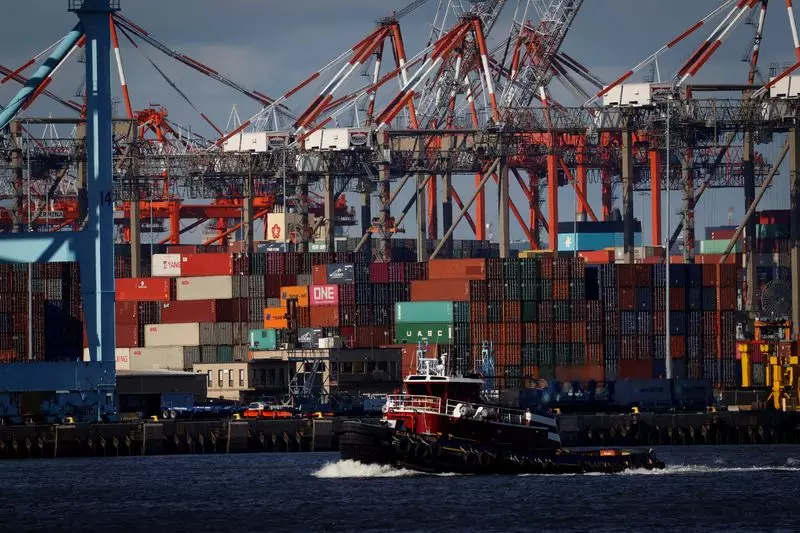On the cusp of significant disruptions to U.S. ports, the International Longshoremen’s Association (ILA) has officially announced a strike scheduled to commence on Tuesday. This announcement comes in the wake of prolonged disputes over wages and working conditions between the ILA and the United States Maritime Alliance (USMX), the entity that oversees employers in the longshore industry along the Eastern seaboard and Gulf of Mexico. The implications of this strike are immense, as it threatens to halt operations at key ports from Maine all the way to Texas, impacting approximately 50% of the nation’s ocean cargo operations and reverberating through an already strained supply chain.
The fundamental issues at play are deeply rooted in decades of perceived wage suppression. The ILA’s statement highlights a sense of frustration that it has faced for over 50 years. The union’s push for wage increases and cessation of ongoing terminal automation projects aims to secure a better economic future for its workers. These demands reflect a broader sentiment among labor groups across various sectors who contend that the benefits of their labor have not kept pace with the rising cost of living and inflation pressures in recent years.
Should the labor action take place, it will be the first coast-wide ILA strike since 1977, marking a significant moment in labor history. With no current negotiations on the table and a midnight deadline looming, the onset of this strike could trigger a wave of uncertainty, not only affecting cargo transport but also extending to various industries dependent on timely deliveries to maintain operations.
The timing of this strike is especially critical given the upcoming U.S. presidential election. President Joe Biden’s administration has been notably reticent regarding direct intervention in this labor dispute. In a recent statement, the President expressed his commitment to collective bargaining principles and his reluctance to invoke the Taft-Hartley Act, which allows for temporary federal intervention in labor disputes that pose risks to national security. This hands-off approach has elicited mixed reactions, underscoring the delicate balance between supporting labor rights and mitigating potential economic fallout.
Business leaders, represented by organizations like the Business Roundtable, have voiced serious concerns about the ramifications of a labor stoppage. They warn that the daily economic cost could run into the billions, ultimately affecting American workers, consumers, and businesses alike. Such dire warnings signal a sense of urgency for both parties to reach a resolution prior to the deadline.
The ramifications of a strike could be profound and widespread. Ports serve as crucial nodes in the logistics chain, and a work stoppage could impede the flow of essential goods, including food and automobiles. The vulnerability of supply chains has been starkly highlighted in recent years due to other crises—including the COVID-19 pandemic and global shipping disruptions—making the prospect of a strike particularly daunting at this juncture.
The White House and various stakeholders in the economy are acutely aware of the potential consequences and the way they could ripple through various sectors. While the ILA has assured that military cargo and cruise ship traffic would not be affected, the threat of prolonged delays at commercial ports could hinder operations for countless businesses and lead to rising prices for consumers, further aggravating inflation concerns.
As the deadline approaches, the focus turns to whether the negotiating parties can find common ground. With both sides having publicly articulated their positions, it remains to be seen if the ILA’s demands for wage increases and adjustments to terminal operations can be met without extensive labor stoppages. The stakes are high, and as history has often shown, unresolved labor disputes can lead to significant socio-economic repercussions that extend beyond immediate financial concerns.
In these tense moments, the hope is that constructive dialogue will prevail, averting a strike that could prove costly for the U.S. economy and disrupt the lives of millions relying on these critical supply chains. As pressures mount from both workers and business leaders alike, it is at this nexus of labor rights and economic stability that the future of U.S. shipping and commerce hangs in the balance.

